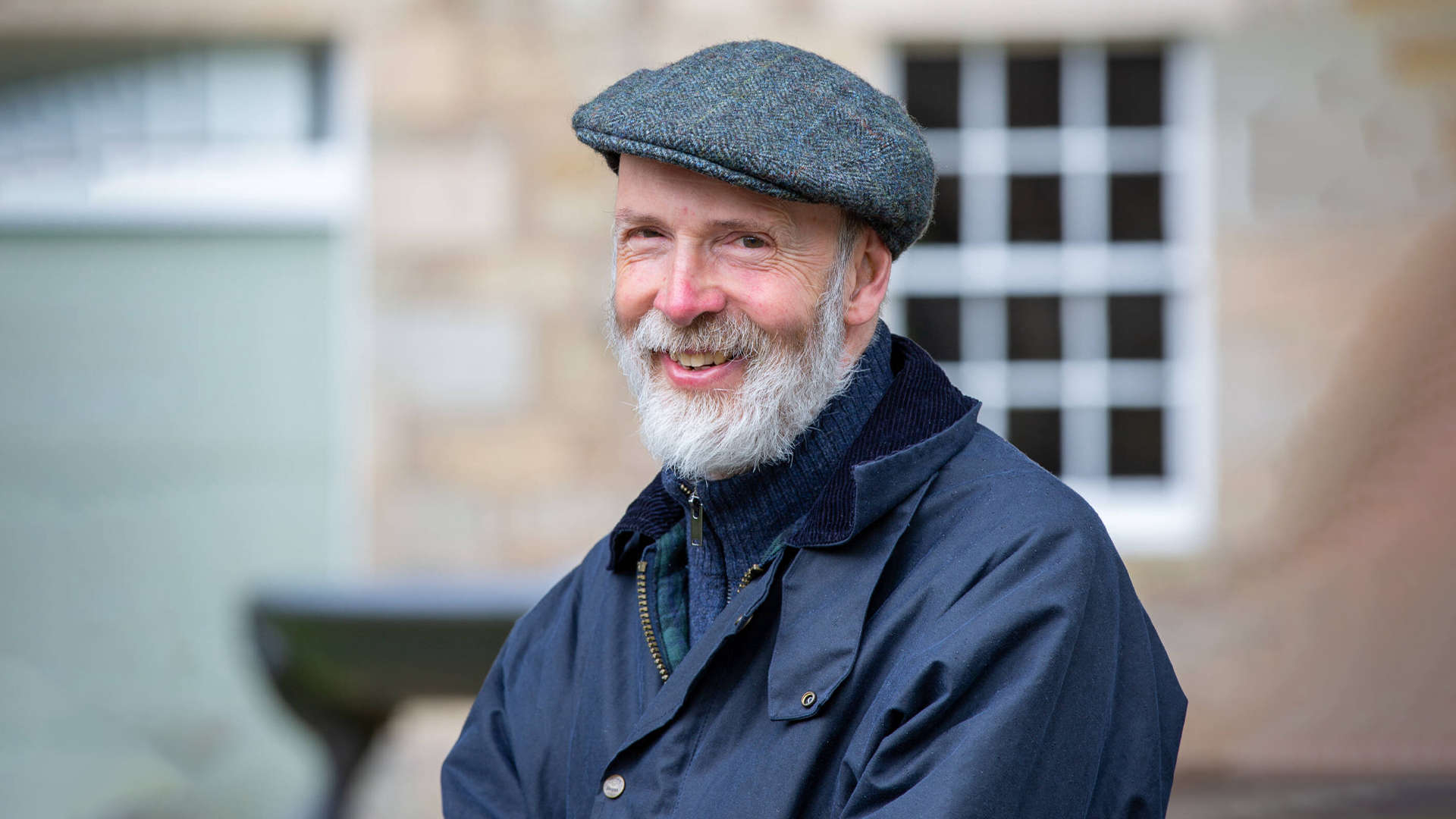Last year I headed to Groundswell Festival, searching for tips on how to sustain and regenerate the family farm I’ve been involved in for 40 years. I’d known of this popular regenerative agricultural festival for years but Hertfordshire is a long way from Fife. When I finally made it, I wasn’t disappointed. Groundswell is an inspiring, informative farmer-to-farmer event with all sorts of people sharing trials, tribulations and joys of the journey. People walking the talk with little bullshit about how hard it is to make a living and leave the soil in better condition than we find it.
One of the sessions I enjoyed most was on what it means to be regenerative? John Cherry (co-founder of Groundswell) was one of the speakers. I flew a kite and asked if Groundswell might consider collaborating in a smaller field in Fife, Scotland? Neighbouring farmer Johnnie Balfour of Balbirnie was there. So one year on, drums are rolling for this offshoot of Groundswell on Scottish soil. GO Falkland stands for Groundswell Outreach – a partnership with Groundswell Agriculture.
Having signed off in March, we’ve created an amazing programme at speed. Led by, and collaborating with, farmers, foresters and supportive organisations such as Scottish Ecological Design Association, the Soil Association and Groundswell, it’s been quite a journey. With over 65 speakers, I’ve been moved by the energy behind this event to reimagine the future of food, farming and forestry in Scotland.
Why GO Falkland?
Farming at Falkland has been changing for some time. Bruce Bennett started Pillars of Hercules 40 years ago, setting up one of Scotland’s earliest organic farm shops and cafés. The Home Farm turned organic in 2007 and planted an orchard in 2012. In 2015 Falkland Rural Enterprises Ltd opened up small-holding opportunities for “new farmers” at Falkland Kitchen Farm and Meadowsweet Organics. Falkland is no panacea. Robin Nisbet farms Home Farm with high standards of husbandry but often does not get an organic premium for produce because of fluctuating markets. With rising prices, costs of production are often higher than income. More change is needed.
An alternative succession
My children and I have recently declared our intention to bring to an end our family’s ownership of Falkland Estate. Rather than go to the market, we’re initiating some conversations to explore what it might mean for the community – through Falkland Stewardship Trust – to take on ownership? This would involve a move from Stuart family to a form of locally rooted steward-ownership. I’ll be speaking about this at GO Falkland alongside Priscilla Gordon-Duff whose family have decided to maintain the family line which has owned Drummuir Estate, Banff, for many generations.
Food 4 Fife
I feel lucky to live and work in Fife where the Council and NHS Fife have begun to engage local farmers and other stakeholders on a local food strategy for our region which will look at improving the quality, health benefits, affordability, access to and reduce the environmental impacts of food consumed within Fife. You can learn more about this – and changes afoot in Dumfries and Galloway and Glasgow – at the session on Good Food Regions.
Other highlights
Those who venture to Falkland will be spoiled for choice – with four tents for talks and an exhibition tent. I’m going to risk naming a few tasty sessions that stand out for me: Joel Williams on Why Soil Science and Regenerative Agriculture matters?; Scottish Ecological Design Association hosting a session on “Getting ready for the future” on how to engage with the biodiversity crisis. Anne Biklé exploring connections between our guts, the microbiome and soil; Helen Browning of the Soil Association and others discussing latest developments in agroforestry; Guy Watt (Co-chair of Scotland’s Forestry & Timber Industry’s Group) is leading a discussion on the potential of small woodlands and timber processing at a local scale; and Nikki Yoxall and Clem Sandison of Pasture for Life, hosting a variety of conversations with farmers taking a regenerative approach.
A final anecdote
Last week I attended an Agriculture and Horticulture Development Board event at Balbirnie Home Farm and was talking with a small group of farmers about GO Falkland. One farmer said he was coming, acknowledging a good programme but thought one or two things were a “bit fluffy”. I asked for an example, so he pointed to the session called “Soil to Shelf: Fibre Futures” in which a panel will explore the potential to use wool and other fibres to make clothes. Certainly fluffy! – and a big question as to whether wool could ever contribute to the wealth and health of a nation as it once did? Time will tell… Whether or not that one’s for you, there’s a lot to choose from at GO Falkland… and still tickets left. Best to book in advance, as we’ve an agreed limit.

